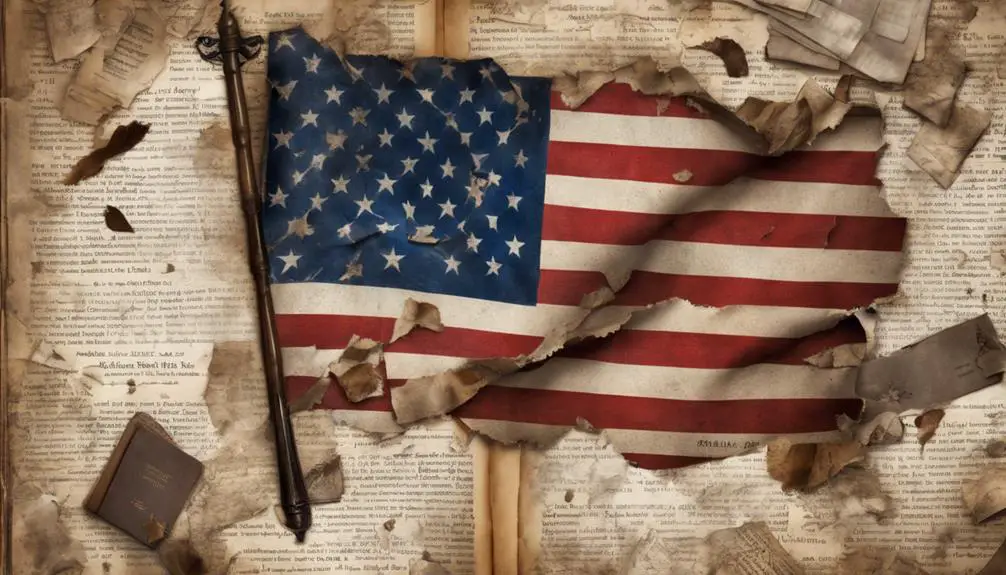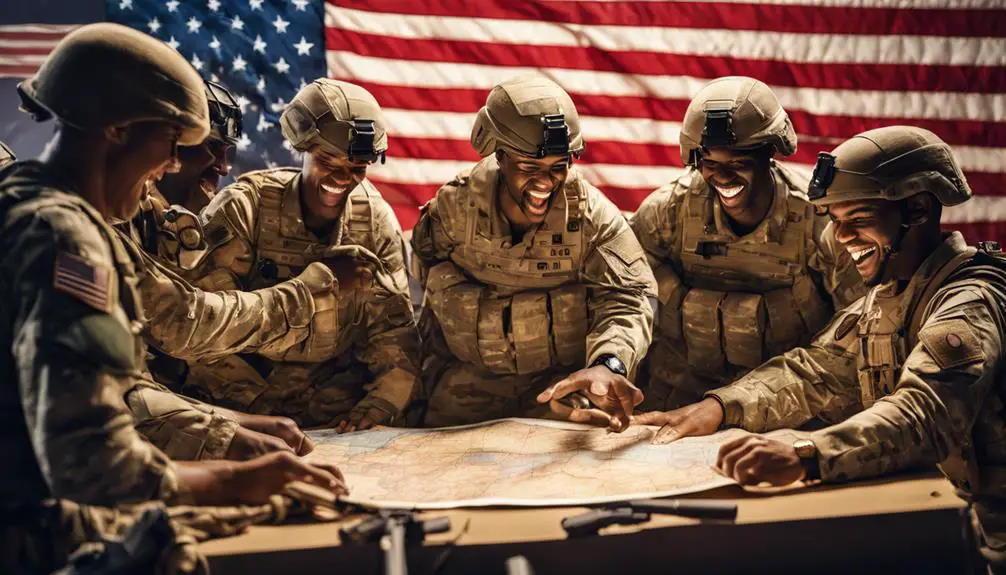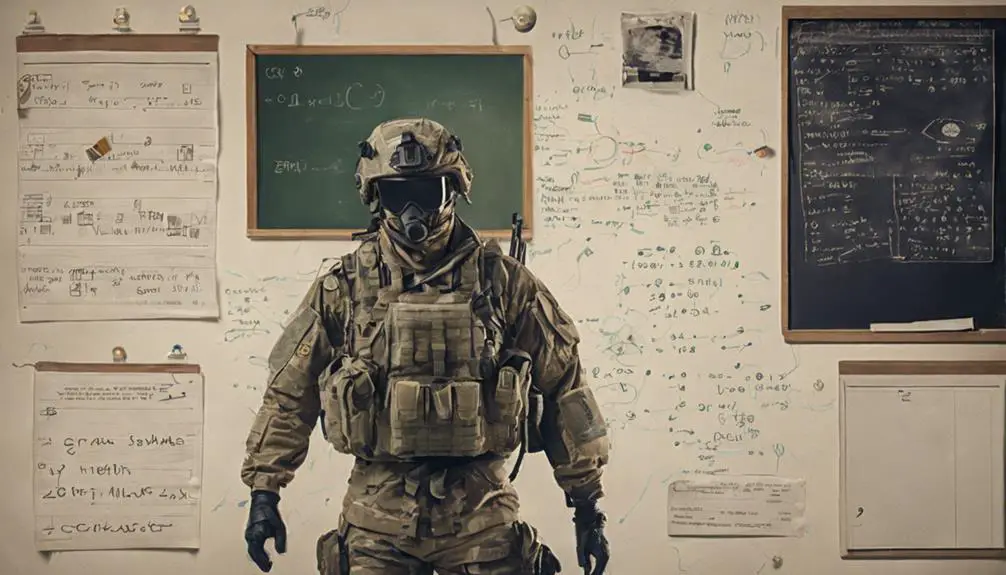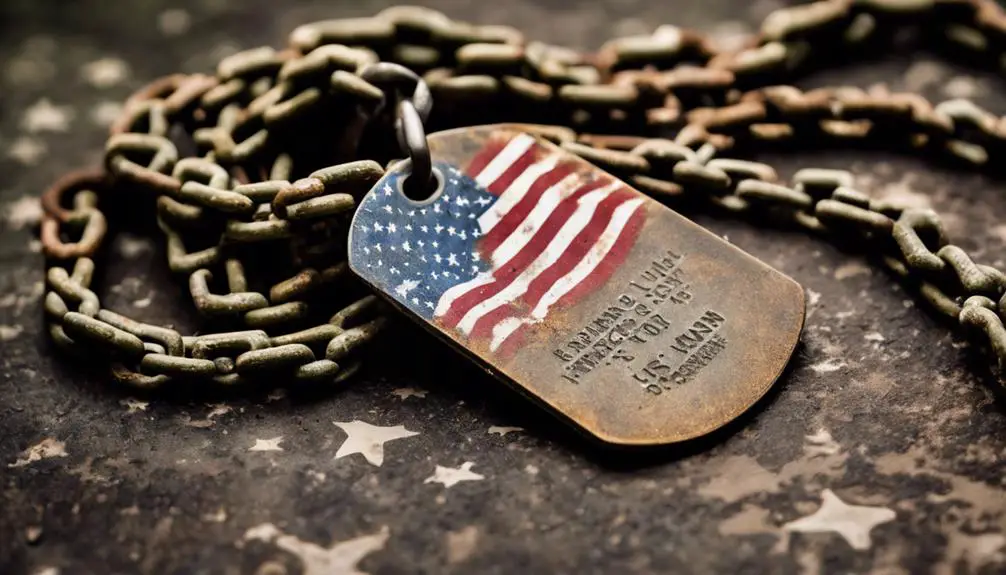As you explore American military culture, you'll encounter a rich slang landscape shaped by history, social dynamics, and cultural contexts. Terms like "foxhole" and "grunt" have become integral to the military lexicon, with each branch having its unique slang reflecting its culture and mission. Slang terms like "Hooah" and "Oorah" foster camaraderie, bridging gaps between diverse individuals. You'll discover how technology and social media have influenced the evolution of military slang, creating a concise and expressive new language. As you continue, you'll uncover the nuances of military lingo, decoding its jargon and uncovering its fascinating history.
Origins of Military Slang Terms

As you explore the world of American military slangs, it's crucial to understand the origins of these terms. Frequently, military slang terms originate from the cultural, social, and historical contexts in which they emerge, often as a response to the unique challenges and experiences of military life.
You'll find that many slang terms have etymological roots in the historical events, cultural norms, and social dynamics of the time. For instance, the term 'foxhole' originated during World War I, referring to a trench or pit dug for protection. This term has its roots in the historical context of trench warfare, where soldiers needed a safe haven from enemy fire.
Similarly, the term 'grunt' emerged during the Vietnam War, referring to infantrymen who engaged in intense combat. This term has its roots in the cultural context of the war, where soldiers needed a way to identify with one another.
Slang Across the Branches
While exploring the origins of military slang terms provides insight into their historical context, you'll find that each branch of the military has its unique slang vocabulary, shaped by its distinct culture, mission, and operational environment. This branch-specific slang not only reflects the unique experiences and challenges of each service but also fosters a sense of identity and camaraderie among its members.
| Branch | Slang Term | Meaning |
|---|---|---|
| Army | "Hooah" | Expression of excitement or agreement |
| Navy | "Deck" | Refers to the ship's deck or a specific area |
| Air Force | "Bingo" | Fuel level indicator, also used to signal "time to go" |
| Marines | "Oorah" | Expression of enthusiasm or motivation |
| Coast Guard | "SAR" | Search and Rescue operations |
The differences in slang terminology across branches also highlight the Service rivalries and competitive spirit that exist among them. By understanding these branch-specific slang terms, you'll gain a deeper appreciation for the unique culture and traditions of each military branch.
Creating Camaraderie Through Slang

Military slang plays a significant role in fostering camaraderie among service members, as it provides a shared language that reinforces their sense of belonging and shared experience. As you navigate the complex web of military culture, you'll discover that slang serves as a powerful bonding mechanism, bridging the gaps between individuals from diverse backgrounds.
By adopting unique phrases and terminology, you're signaling to others that you're part of the 'in-group,' a sense of belonging that's essential for building trust and unity.
Moreover, military slang often takes the form of unity symbols, reinforcing a sense of shared identity and purpose. For instance, using specific acronyms or colloquialisms can instantly convey a sense of familiarity and shared experience, fostering a sense of togetherness among service members.
Slang in the Modern Military Era
You're now entering an era where technology and social media have greatly influenced the evolution of military slang. As you explore the modern military landscape, you'll notice a significant shift in the way slang is created, disseminated, and consumed. The digital vernacular has become an integral part of military communication, with social media platforms and messaging apps serving as catalysts for linguistic innovation.
The cultural evolution of military slang is evident in the way it adapts to technological advancements. For instance, the rise of emojis and abbreviations has given birth to a new language that's both concise and expressive. Military personnel are leveraging digital tools to create and share slang that's unique to their online communities. This digital vernacular isn't only a reflection of the military's cultural evolution but also a demonstration of its ability to adapt to changing times.
As you explore further into the modern military era, you'll discover that slang is no longer confined to traditional oral traditions. Instead, it has become a dynamic, decentralized, and democratized phenomenon that's shaped by the intersection of technology and culture.
Decoding Military Lingo and Jargon

Deciphering the code of military lingo and jargon requires a thorough exploration of the nuances of language, cultural references, and historical context. As you investigate the world of military slang, you'll encounter a unique blend of technical terms, colloquialisms, and idioms that can be both fascinating and confusing.
To crack the code, you'll need to understand the cultural and historical context in which these terms emerged.
Here are three key aspects to keep in mind when decoding military lingo and jargon:
- Military Clichés: Familiarize yourself with common phrases and expressions that have become synonymous with military culture, such as 'Hooah' (a term of excitement or approval) or 'Oorah' (a Marine Corps battle cry).
- Jargon Busters: Be aware of technical terms and acronyms that are specific to different branches or specialties, like 'SITREP' (situation report) or 'FOB' (forward operating base).
- Contextualizing Slang: Consider the historical and cultural context in which slang terms emerged. For instance, 'GI' originated from the term 'Government Issue,' which referred to the stamped marking on military equipment.
Frequently Asked Questions
Are Military Slang Terms Used by Other Countries as Well?
As you explore the world of military slang, you'll find that it's not unique to the US. Many countries have their own colloquialisms, reflecting cross-cultural adoption and international influences.
For instance, the British Army has 'squaddie' for soldier, while the Australian Defence Force uses 'digger' for soldier. Similarly, the Canadian Forces employ 'loonie' for a one-dollar coin.
It's clear that military slang terms are used globally, with each country putting its own spin on linguistic shortcuts.
Can Civilians Use Military Slang Without Offending Veterans?
When using military slang, you should consider the implications of cultural appropriation and language respect.
While it's tempting to adopt catchy phrases, you must acknowledge the original context and avoid exploiting military culture for personal gain.
Be mindful of the emotions and experiences tied to these terms, and avoid using them flippantly.
Is Military Slang Only Used in Combat Zones or Globally?
As you explore the domain of military slang, you'll find it's not limited to combat zones. In reality, military culture has a global reach, transcending geographical boundaries.
Military personnel, diplomats, and contractors often interact with international forces, adopting and adapting slang to facilitate communication. This phenomenon is evident in multinational operations, peacekeeping missions, and joint exercises, where military slang becomes a universal language, bridging cultural divides and fostering cooperation.
Are There Any Military Slang Terms Considered Offensive?
Understanding the evolution of language and being mindful of cultural sensitivity and historical context is crucial when considering if certain military slang terms are considered offensive.
Terms that were once acceptable may now be deemed inappropriate due to changing social norms. For instance, some terms may be rooted in outdated stereotypes or perpetuate harmful biases.
Recognizing the evolution of language and avoiding using terms that might be offensive to certain groups is important.
Can I Create My Own Military Slang Term and Have It Catch On?
You're wondering if you can coin your own military slang term and make it popular.
To increase its chances, understand that slang origins matter – terms often emerge from shared experiences and cultural nuances. Term authenticity is key; it should resonate with the community and convey a specific meaning.
If you craft a term that's relatable, clever, and useful, it might just catch on. But it's essential to be mindful of the audience and avoid forced or pretentious language that might come across as inauthentic.
Conclusion
As you navigate the complex landscape of the American military, you'll find that slang is the thread that weaves through the fabric of its culture. Like a beacon of familiarity in the chaos of war, military slang provides a sense of comfort and belonging.
It's a secret handshake, a whispered password, and a badge of honor all at once. As you decode the lingo, you'll uncover the rich tapestry of camaraderie, esprit de corps, and sacrifice that defines the American military experience.







